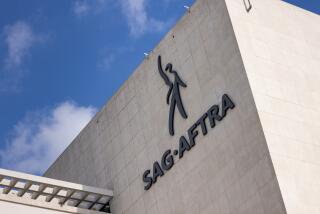File-Share Firms Face Tough Fight in Senate
- Share via
File-sharing companies that beat back an entertainment industry lawsuit now face a potentially stronger foe: the industry’s lobbyists in Washington.
A three-judge federal appeals panel ruled Thursday that the companies behind the Grokster and Morpheus online networks weren’t liable for the illegal copies of music and movies their users make.
The record labels and Hollywood studios that brought the suit are expected to appeal. In the meantime, their lobbyists are taking the case against file-sharing companies to the 10 Republicans and nine Democrats on the Senate Judiciary Committee.
The lawmakers are mulling over a bill that could enable copyright owners to exterminate most of the companies distributing popular file-sharing programs. The Inducing Infringement of Copyrights Act of 2004 would make firms liable if they intentionally helped or prompted people to commit piracy.
The stated targets are the companies behind Grokster, Kazaa and other file-sharing networks. The networks have attracted millions of people eager to download free songs and videos, and the companies have profited handsomely by blanketing those users with advertising.
Mitch Bainwol, chief executive of the Recording Industry Assn. of America, said Friday that “there’s nothing inherently wrong” with file sharing as a distribution system, “other than in most applications it’s been hijacked and morphed into a use that’s destroying the creative process.”
Critics say the bill is so vague that it would invite lawsuits against the developers of even noncontroversial products such as Apple Computer Inc.’s iPod digital music player, whose large storage capacity may encourage illegal music downloads. As a result, critics say, it would increase the entertainment industry’s influence not only over how products are marketed but also over what features they include.
“What our industry fears isn’t so much liability; it’s litigation,” said Michael Petricone, vice president of technology policy for the Consumer Electronics Assn. “The three constituencies that should be very excited about this bill are the entertainment industry, trial lawyers and countries like India and China that want to lure away American businesses.”
He added, “We all agree if somebody is building a business, and that business is dependent on infringement, that’s wrong.” But, he said, it’s crucial to find a way that targets behavior, not technology.
The bill would enable copyright holders to sue for up to $150,000 per work that was illegally copied -- an amount that would be devastating to file-sharing networks that support millions of daily downloads.
Opposition to the bill from consumer electronics companies, technology firms and public interest groups was so strong that sponsors of the bill have scrambled to find a compromise. Last week, they enlisted Marybeth Peters, the U.S. register of copyrights, to meet with some of the interested groups and seek a consensus by Sept. 7.
Opponents of the bill circulated at least three alternatives this week that would target the legislation more narrowly on file-sharing piracy.
With time running out in this year’s legislative session, sponsors are expected to move ahead with some version of the bill, consensus or not. And the list of sponsors reads like a who’s who in the Senate: In addition to the chairman and top Democrat on the Judiciary Committee, it includes Senate Majority Leader Bill Frist (R-Tenn.) and Minority Leader Tom Daschle (D-S.D.).
Attorney Andrew Bridges, a copyright-law litigator who used to defend the Morpheus software, said he had no doubt that the bill would lead to companies being sued for products like the iPod. The potential liability, he said, would put innovators at Hollywood’s mercy.
“The fact is, the entertainment industry ... they bring aggressive cases, and they litigate them vigorously,” Bridges said. “And start-ups often can’t stand the burden of litigation itself.”
More to Read
The biggest entertainment stories
Get our big stories about Hollywood, film, television, music, arts, culture and more right in your inbox as soon as they publish.
You may occasionally receive promotional content from the Los Angeles Times.











